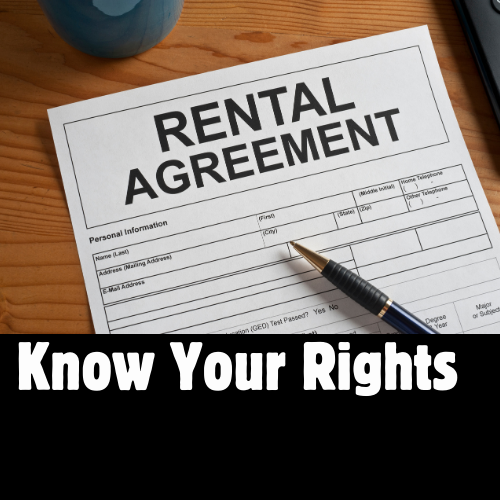Owning a vacation rental can be an exciting and profitable venture, offering you the opportunity to generate income while providing travelers with a unique place to stay. However, as a vacation rental owner, it’s important to understand your rights to protect your property, maximize your earnings, and comply with legal regulations. Whether you’re renting out a cozy cabin, a beachfront condo, or a city apartment, knowing your rights can help you navigate the complexities of short-term rental management.
1. The Right to Rent Your Property
One of the fundamental rights of a vacation rental owner is the ability to rent out your property. However, this right is subject to local laws, zoning regulations, and homeowners’ association (HOA) rules. Many cities and towns have implemented short-term rental restrictions, requiring owners to obtain permits or licenses before listing their properties on platforms like Airbnb, Vrbo, or Booking.com.
- Check Local Laws: Some municipalities ban short-term rentals outright, while others impose limits on the number of nights a property can be rented per year.
- HOA and Community Rules: If your vacation rental is in a condominium or gated community, be aware of any bylaws that may restrict or regulate short-term leasing.
- Permit Requirements: Some cities require vacation rental owners to register their properties, pay taxes, and follow specific safety guidelines.
2. The Right to Set Rental Terms and Conditions
As the owner, you have the right to establish rental policies and guidelines for your guests. This includes:
- Setting Rental Rates: You can charge whatever price the market supports, adjusting rates based on demand, seasonality, and competitor pricing.
- Establishing House Rules: You can set policies regarding pets, smoking, parties, and occupancy limits.
- Minimum Stay Requirements: You can decide how many nights a guest must book, such as requiring a three-night minimum stay during peak seasons.
- Security Deposits: You have the right to require a security deposit to cover damages or excessive cleaning fees.
3. The Right to Screen Guests
You are not required to rent your property to every guest who inquires. You can screen potential guests based on:
- Verified Profiles: Many platforms allow you to check guest reviews and ratings from previous hosts.
- Age Restrictions: Some locations permit owners to set a minimum rental age to avoid underage guests who might host parties.
- Rental Agreements: You can require guests to sign a rental contract outlining the terms of their stay.
- Declining Bookings: You have the right to refuse bookings from guests who do not comply with your house rules or seem unreliable.
4. The Right to Protect Your Property
As a vacation rental owner, you have the right to take steps to protect your investment:
- Security Measures: Installing cameras on exterior areas (in compliance with privacy laws) can help monitor activity around the property.
- Damage Protection Plans: Many rental platforms offer host protection programs that cover damage caused by guests.
- Insurance Coverage: Standard homeowners’ insurance may not cover short-term rentals, so you should invest in vacation rental insurance to protect against liability claims, theft, and property damage.
- Eviction Rights: If a guest violates your rental agreement or refuses to leave after their booking ends, you have the right to take legal action to remove them.
5. The Right to Earn Rental Income and Handle Finances
Earning income from your vacation rental comes with financial responsibilities and rights:
- Tax Deductions: You may be able to deduct expenses related to your rental, such as maintenance, cleaning fees, and mortgage interest.
- Collecting Taxes: Some jurisdictions require you to collect and remit occupancy taxes (similar to hotel taxes).
- Setting Cancellation Policies: You can define how refunds are handled if a guest cancels a booking.
- Choosing a Payment Method: Some owners prefer direct payments, while others rely on secure booking platforms to handle transactions.
6. The Right to End or Modify Rental Agreements
If your circumstances change, you have the right to discontinue renting out your property or modify your listing terms:
- Deciding When to Rent: You can block dates on your calendar whenever you need the property for personal use.
- Updating Rental Policies: You can change rental rates, minimum stay requirements, or house rules as long as they comply with booking platform policies.
- Selling the Property: If you decide to sell your vacation rental, you may need to honor existing bookings or transfer them to the new owner.
7. The Right to Seek Legal Help if Needed
If you encounter disputes with guests, neighbors, or rental platforms, you have the right to seek legal assistance. Common legal concerns include:
- Damage Disputes: If a guest causes significant damage and refuses to pay, you may need legal intervention.
- Zoning Violations: If local authorities challenge your rental activity, a lawyer can help you navigate regulations.
- Neighbor Complaints: If your vacation rental generates noise or parking issues, you may need legal advice on how to address disputes.
Owning a vacation rental can be a rewarding experience, but it comes with responsibilities and legal considerations. Understanding your rights as a vacation rental owner allows you to operate confidently, protect your investment, and provide guests with a positive experience. Whether you’re managing a short-term rental as a side hustle or a full-time business, staying informed about regulations, financial obligations, and property protection strategies will help you maximize your success in the vacation rental market.
